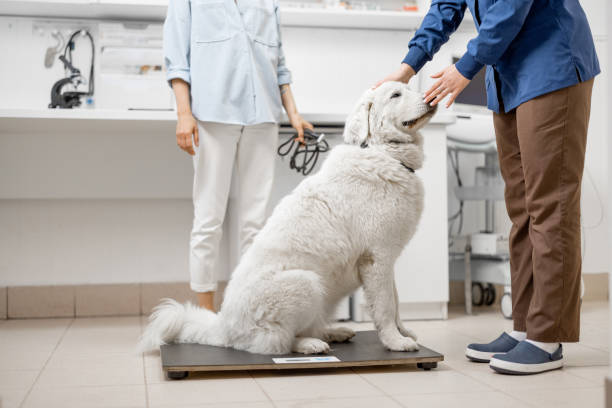In pet care, dog weight management is a vital aspect. Being overweight or underweight can have adverse effects on a dog's health, such as arthritis, heart disease, diabetes, etc. Therefore, as a responsible pet owner, it is particularly important to understand and implement scientific weight management strategies. The following is a comprehensive dog weight management guide, hoping to bring health and vitality to your pet.
1. Understand the importance of ideal weight
Each dog has a relatively ideal weight range based on its breed, age, gender and size. This range can be determined through a veterinary assessment or by referring to the pet weight management guide. Staying within this range helps dogs maintain their best physical condition and prevent the occurrence of diseases.
2. Regular weight monitoring
Regular monitoring is essential to effectively manage a dog's weight. It is recommended to weigh your dog at least once a month and record the weight data. If a significant change in weight is found, you should communicate with your veterinarian in time to adjust your diet and exercise plan.

3. Reasonable diet control
Diet is the core of weight management. For dogs who need to lose weight, the amount of food should be gradually reduced, but never reduced significantly at one time to avoid health problems. Choose high-quality dog food and avoid foods that contain too much fat and sugar. At the same time, control the intake of snacks, and use snacks as rewards rather than daily snacks.
For dogs who are too thin, the food intake should be appropriately increased, and dog food with high nutritional value should be selected. Make sure that the dog gets enough protein, fat, vitamins and minerals to meet its growth and development and daily activities.
4. Make an exercise plan
Exercise is another major factor in controlling weight. Make a suitable exercise plan according to the age, physical strength and health of the dog. For young and healthy dogs, you can arrange activities such as walking, jogging or playing twice a day; for elderly or weak dogs, you should choose low-intensity exercise methods, such as short walks and gentle stretching exercises.
During exercise, pay attention to the dog's reaction and physical condition to avoid injuries caused by excessive exercise. At the same time, make sure that the dog has enough water intake to prevent dehydration.
5. Pay attention to mental health
In addition to physical health, the mental health of dogs also has an important impact on weight management. Negative emotions such as stress, loneliness and anxiety may cause changes in the dog's appetite and weight fluctuations. Therefore, as an owner, you should accompany the dog more, give love and comfort, and create a stable and harmonious living environment for it.
6. Regular physical examination and consultation
Regular physical examination is an important way to find and solve problems in time. Through physical examination, you can understand the dog's weight, physical condition and potential health problems. During the physical examination, keep in touch with the veterinarian to understand the dog's weight management and make adjustments according to the veterinarian's advice.
In addition, you can also consult a professional pet nutritionist or behavior trainer for more professional guidance and advice.
In short, dog weight management is a comprehensive process that requires the owner to work together in diet, exercise, mental health and regular physical examinations. Only in this way can we ensure that our dogs maintain a healthy weight and posture and enjoy a happy life.









0 Comments